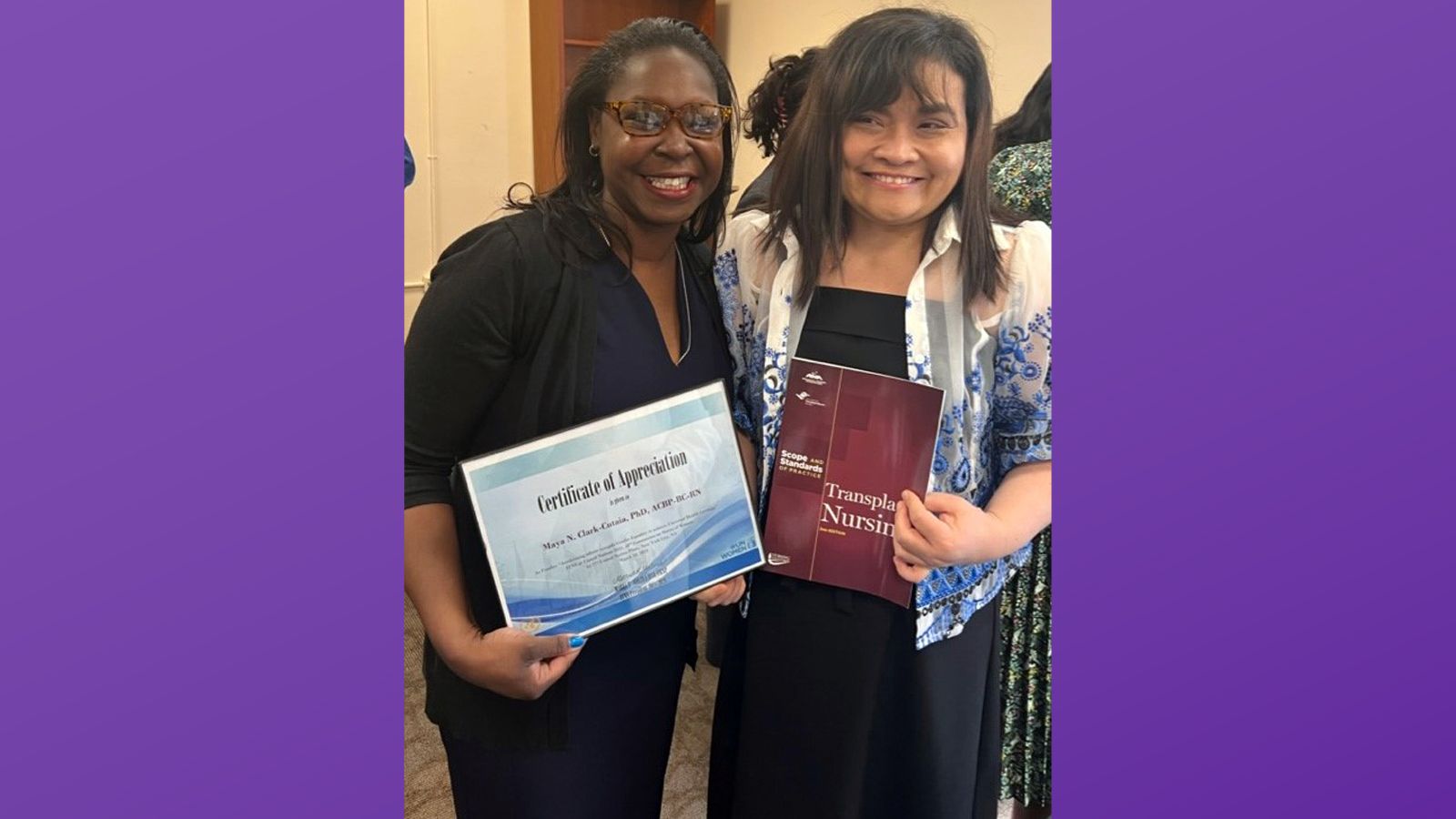It was Hunter in action!
Dr. Maya Clark-Cutaia, the Evelyn Lauder Associate Dean for Nurse Practitioner Programs at Hunter’s School of Nursing, spoke on a panel with other international health leaders March 18 at the United Nations Commission on the Status of Women.
The panel shared solutions for tackling global gender inequity in eye health and organ transplantation access.
“The session was pure joy and very empowering,” Dr. Clark-Cutaia said. “It was an honor to be a part of a panel of this caliber, speaking to and brainstorming with others on the frontline striving for gender equity across the globe. I look forward to the relationships, innovations, and discussions derived from CSW.”
Along with Dr. Clark-Cutaia, the panel consisted of top African ophthalmologist Dr. Chiku Mathenge; Dr. Laura Taylor of the Uniformed Services University of the Health Sciences; transplant expert Dr. Joyce Trompeta; transplant nurse and educator Nancy Stitt, and philanthropy leader Andrea Sanseverino Galan. The keynote speakers were Jennifer Gersbeck of The Fred Hollows Foundation and Maria Molina of the International Transplant Nursing Society.
The two-week Commission conference discussed policies and strategies to end women’s and girls’ poverty and “social protection systems, access to public services, and sustainable infrastructure for gender equality and the empowerment of women and girls.”
Dr. Clark-Cutaia began overseeing the Evelyn Lauder Community Care Nurse Practitioner Program in January. It now encompasses 33 fellows specializing in Adult Gerontology or Psychiatric Mental Health.
The program — a partnership with New York Health+Hospitals, the nation’s largest municipal health system — will provide a pipeline of highly educated nurse practitioners to the city’s most underserved and under-resourced communities, including homeless and mentally ill populations.
Dr. Clark-Cutaia has secured more than $1.28 million in funding from the National Institute of Nursing, National Institute of Minority Health and Health Disparities, and Gordon and Betty Moore Foundation to conduct research on health equity and the effect of structural racism and other barriers to healthcare delivery among minority populations.


